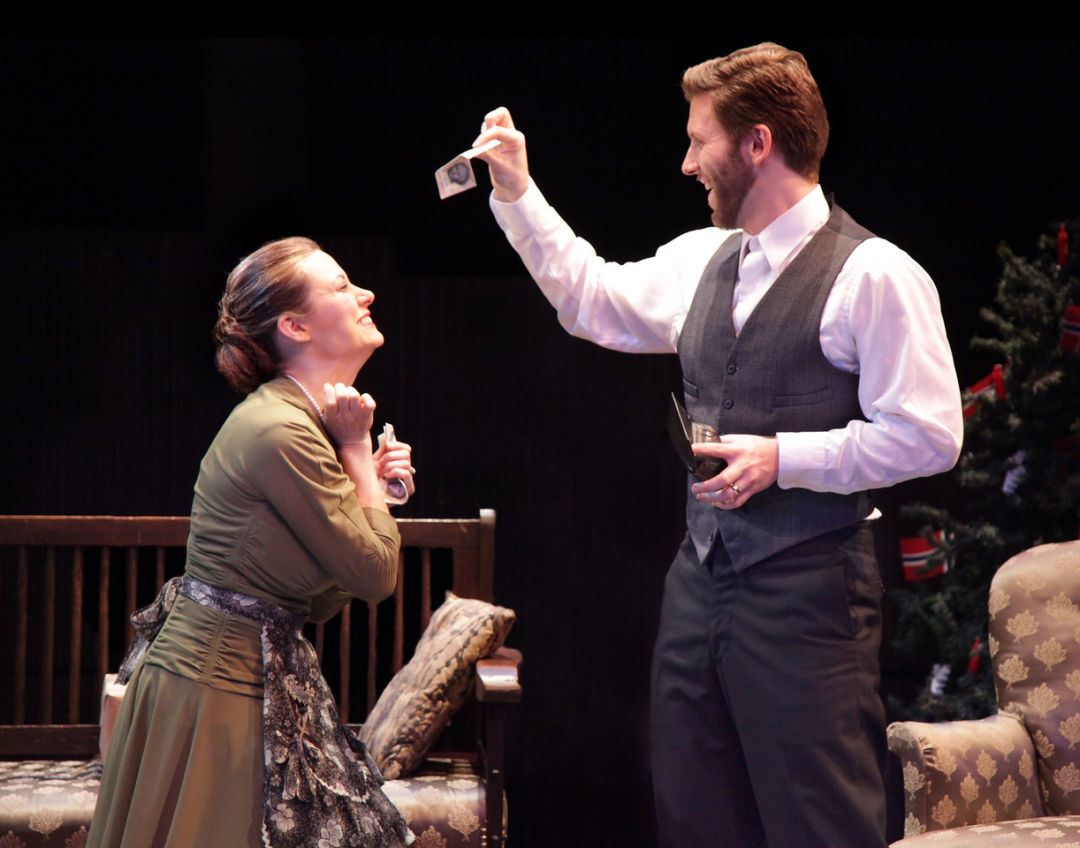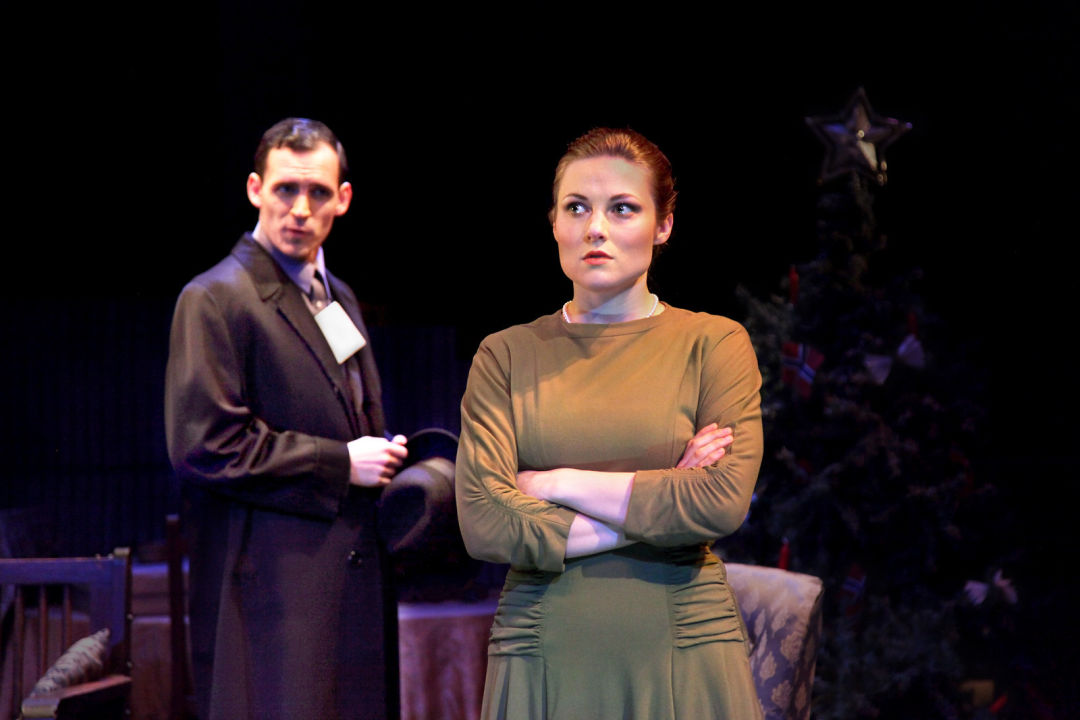FSU/Asolo Conservatory's Nora

Jessie Taylor and Mike Perez in Nora. Photo by Frank Atura
At any given moment, somewhere in the world, there is probably a production of Henrik Ibsen’s A Doll’s House playing to audiences who are still caught up in the story of housewife Nora Helmer and her world. Right now, Ingmar Bergman’s adaptation of the classic, Nora, is playing at the Cook Theatre in an FSU/Asolo Conservatory production.
Bergman and Ibsen seem natural enough soulmates—gloomy Scandinavians both—but of course Bergman is better known as a film director (even though he did work a lot for the stage as well). Some of his cinematic sense propels this stripped-down version of Ibsen’s original, which eliminates a few minor characters and tightens the flow.
One scene moves swiftly into the next, as actors, sitting on chairs on the sides of the stage when not performing, spring quickly into the scene when called for. And the lighting here (by Chris McVicker), the setting (Derek Miller’s design for the Helmer home around Christmastime, with a looming set of stairs and a portal at the top through which light streams) and the music (the lower range of the piano, urgent violins) add to a film-like feel.
Purists might notice Bergman’s cuts to the original play, but they don’t in any way detract from the main focus of the piece, as we watch Nora (Jessie Taylor) in action, the child-wife who sits on husband Torvald’s lap and is “fed” her housekeeping money by him the way a parent bird might feed a fledgling. She’s always acting the part she feels she must play, flitting around the house gaily as Torvald’s plaything, but of course we know she harbors a dark secret, one that may bring her life crashing down around her ears: When Torvald (Mike Perez) was sick some years earlier, Nora borrowed money from the shady lawyer Krogstad (Rob Glauz) for a recuperative trip to Italy—and forged her father’s signature on a promissory note, since women were not allowed to borrow money on their own.

Rob Glauz as Krogstad, Jessie Taylor as Nora. Photo by Frank Atura
Now that Torvald has a new position that allows him to fire Krogstad from his job, the lawyer (who has a troubled past), puts pressure on Nora to save himself. Can Nora’s newly arrived old friend, poor widow Christine Linde (Danielle Renella), a past romance of Krogstad’s, be of help? Can Nora bring herself to ask terminally ill family friend Dr. Rank (Jacob Sherburne), who secretly loves her, for money to buy Krogstad off? Or will Nora have to face the music?
Under Andrei Malaev-Babel’s direction, the Conservatory actors mostly succeed in portraying their characters’ individual plights. Taylor and Perez are convincing in their husband-wife relationship, which, as Nora realizes by the end of the play, is not real. The final scene between the two, which can be played with a calm, sad quality on Nora’s part, here delivers more anger; that’s a valid interpretation, too, as she feels fury for how she has been treated since childhood.
Sherburne is likable as Rank, and Glauz believable as a “villain” who may not be all bad. I didn’t understand why Renella’s Christine was played so stridently; whether that was a choice of the director or the actress, it throws the relationship between her and Nora off and raises questions that aren’t answered.
But overall, this version of Ibsen’s groundbreaking work still delivers with emotional and intellectual power. Nora continues through May 1 at the Cook; for tickets call 351-8000 or go to asolorep.org.



